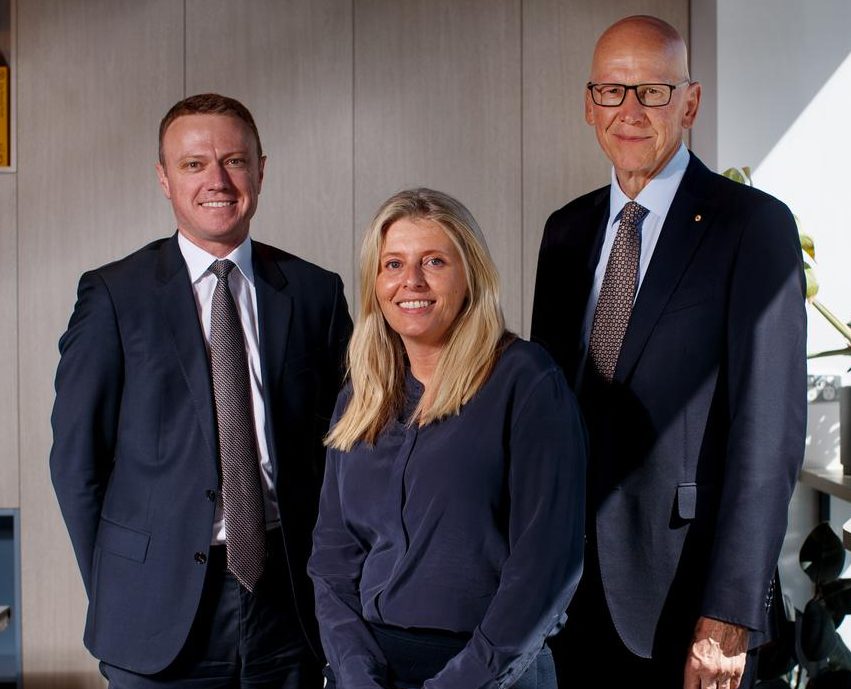By David Rogers, Markets Editor at the Australian
Geoff Wilson sees reason for caution on the outlook for shares after the recent surge in US bond yields, but continues to emphasise the need for investors to take a long-term view.
Speaking at a Future Generation Investor question-and-answer webinar, the founder of Future Generation and head of Wilson Asset Management said the jump in bond yields was making investors nervous.
“With the US economy being a bit stronger, with US bond yields backing up to levels that we haven’t seen since 2007, that makes you a little more nervous,” he said.
“The probability of there being significant pain (economically) is still very low, but it’s probably increased, from say six months ago, a 10 per cent chance, to probably 20 per cent.”
The odds are the market will “make it through” the current surge in bond yields without a “significant adjustment”, but the risk in the share market has “obviously increased”.
“We’ve seen it a number of times before … and normally the equity market comes down,” Mr Wilson said. “We’ve seen a little bit of adjustment in the equity market, but it hasn’t been significant.”
The S&P 500 fell 27 per cent from a March 2022 peak to an October 2022 low as the Fed lifted rates from a record low and began to unwind its pandemic-era quantitative easing.
It bounced 32 per cent by late July 2023 as US tech giants soared on the AI theme and the market anticipated US interest rate cuts as inflation fell.
But with the US 10-year bond yield surging 100 basis points in the past two months on US economic resilience and a blowout in US deficit funding needs, the S&P 500 had dipped 8.4 per cent by early October.
Australian shares have been less volatile by comparison. The ASX 200 fell 16 per cent to its 2022 low, before rising 18 per cent to its 2023 high, then falling 9 per cent to its early October low.
Future Generation offers the opportunity to invest with Australian and global fund managers, while supporting youth-focused not-for-profit organisations.
Future Generation Australia (ASX: FGX) and Future Generation Global (ASX: FGG) are the first listed investment companies in Australia to deliver both investment and social returns.
Despite his concern about bond yields, Mr Wilson maintained that “time in the market” was important.
“In terms of – is now a good time to buy? the difficult part … you look at performance over time and you look at the last 20 years say, in the US, if you just missed the best performing day in each year for the last 20 years, you virtually get no performance versus the market doing sort of 7 or 8 per cent,” he said.
“But at the moment I’d definitely have some money on the sidelines … just in case things do get really rocky.”
The US quarterly reporting season this month is likely to be an important as a guide to how the broader US economy is coping with the rapid tightening of monetary policy by the Fed.
But the sharemarket will be anticipating the outlook six to 12 months from now, he said.
In Australia, consumer discretionary spending “really took a hit” in April and May.
“Speak to the people in the real world and it’s been tough since then, and then the question is probably when will things improve, or will they get a little bit worse,” Mr Wilson said.
“That’s the sort of the million-dollar question, but we know the market moves in anticipation of the economy … when the worst is there, that’s probably when you want to be buying.”
In overseas markets, Lanyon Asset Management portfolio manager and pro-bono manager for Future Generation Nicholas Markiewicz likes Universal Music, Airbus and Lamb Weston.
He favours Universal Music for its high profit margin and assets that it monetises through its stake in Spotify, which he expected to grow its subscriptions even in the event of a recession.
“I wouldn’t call it particularly cheap optically, but it’s certainly cheap relative to the cashflow that they’re going to produce over the next decades,” Mr Markiewicz said.
He also assessed Airbus as a “secure business” in a “questionable economic outlook”, noting that it had a 10-year waiting list for its aircraft, after airlines were forced to cancel orders during the pandemic.”
French fry maker Lamb Weston is another favourite for Markiewicz.
It’s one of only three companies supplying French fries to the big fast food-restaurants in the US.
“French fry demand is remarkably resilient,” he said. “It only fell 2 per cent in the global financial crisis and actually grew through Covid despite half the restaurants in the US being shut down.”
In the Australian sharemarket, Paradice Investment Management lead portfolio manager and Future Generation pro bono manager Tom Richardson said ResMed was his fund’s top holding.
ResMed shares fell as much as 37 per cent after its results in early August, as investors fretted over the potential earnings impact of weight loss drugs.
However, Mr Richardson said that after the share price fall, investors were getting “compensated dramatically” for the possibility of such risks, and his research suggested the weight-loss drugs would shave about 2 per cent off ResMed’s revenue over the medium to long term.
ResMed has a strong balance sheet as well as an attractive valuation after the recent share price fall, and its earnings growth would be supported by the fact that its main competitor, Philips Respironics, has been forced out of the market for the past two years on a product recall issue.

